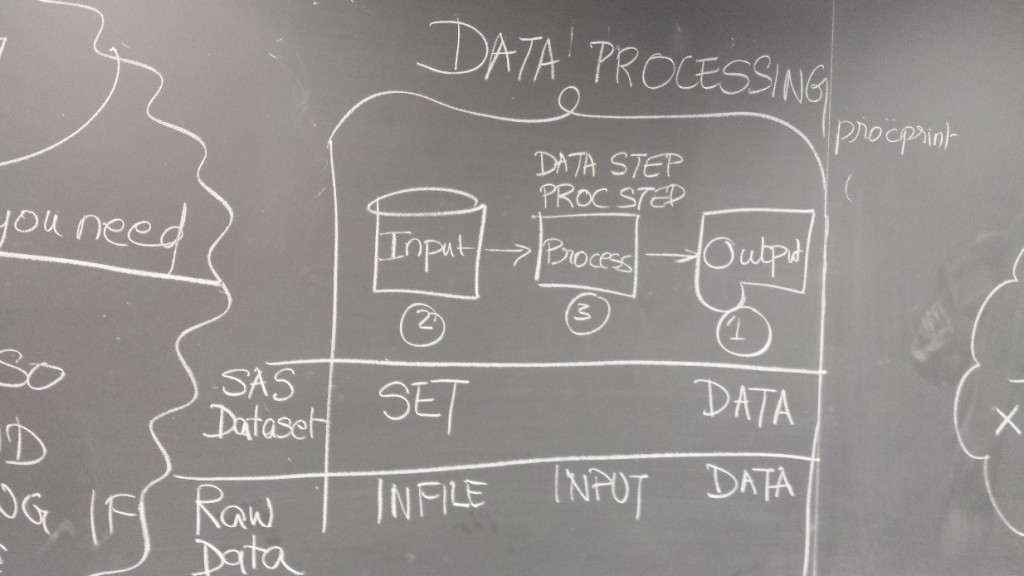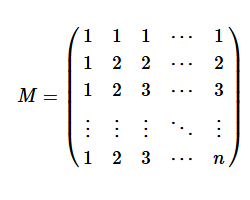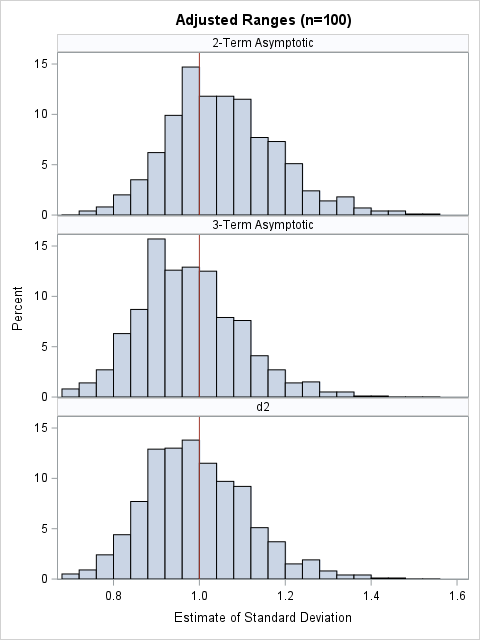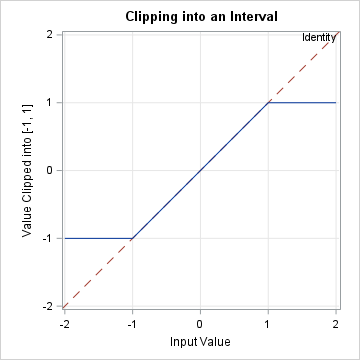Teaching SAS coding is fun. The best part of teaching is hearing success stories from candidates who earn a SAS certification after taking SAS training.
Suiru Jiang is an MBA candidate who successfully passed her SAS certification exam. She took my five-day SAS programming fast track course at Goodman School of Business at Brock University.
I recently sat down with Suiru to ask about her experience to hopefully provide a perspective to other candidates prepping for the certification exam.
Question 1: Why did you want to get SAS certified? What do you think are the benefits to certification?
Suiru: SAS is a powerful statistical platform which can access a variety of data. SAS is derived from the English language which makes understanding as well as application of this programming language easy.
Big data is the future trend. Data analysts have bright prospects. The biggest benefits of getting SAS certified is how it opens doors to employment. SAS certification demonstrates that you can learn your job more quickly.
Question 2: What SAS courses did you take? How did SAS training help you? Could you have learned SAS without structured training?
I took your five-day long SAS programming course. As the instructor, you explained logic connections between all the chapters very clearly, otherwise we would hardly be able to understand why we need to choose a certain statement or option to reach our analysis goal.
Can we learn SAS by ourselves? This is a question I have been asked many times by friends. Instead of giving you a vague definition, I’ll just use myself as a benchmark for you to measure your own situation.
I am a computer science major. I got scholarships every year. I learned C, assembly language and a bit of Java during my bachelor’s degree studies. In the beginning, while learning SAS, I found the similarity of all programming languages because it deals with computers which is still a machine that just processes your orders.
But my friends who have no programming background had difficulty in understanding why we need to build a library each time we reopen SAS software, the logic to access data, or how to create new data in libraries, etc. All these problems were based on zero knowledge of the programming environment. But after understanding the computing environment, they were able to better grasp the main idea and logic of programming.
When you are learning by yourself, especially at the very beginning, the most difficult part of programming is not remembering hundreds of programming statements but to set a foundation for your programming. Logic is vital and it is the foundation of all the activities you do over software. The book may not be enough for you to visualize concepts, although textbooks can illustrate theories to you, can show you examples and quiz you, but the depth of understanding varies from person to person. If the programming world is an uncultivated field for you, you do not have the basic idea and benchmark, how do you know which level you reached?
So, unless you are super smart, you would be better off to take at least some level of basic training to ensure you enter the programming world with the right foot.
Finally, I still took time to go through all the materials in the book and in notes to ensure I passed the exam. This year in my class, only three out of 36 passed the SAS certification exam.
Question 3: What did you do after SAS training? Any specific links that you found helpful that you might like to share to help others looking to get certified?
Suiru: Because of my busy study program, I only read the textbook and my class notes to prepare for the exam. I know Charu has a blog where she shares SAS tips and answers to business problems. I think I’ll start from her blog and do some data mining to find some shortcuts.
Question 4: What are your next steps?
Suiru: I plan to prepare for the advanced level of SAS programming. After all, I chose to be a data analyst in the future. The more I learn today, the better I will get repaid in the future.
Question 5: Tell me something you do outside of your SAS learning in your MBA program. What suggestions do you have for others to do in addition to learning SAS? Any advice that may help them expand their horizon and make them well rounded for an effective job search.
Suiru: The study load to finish an MBA program is heavy, but I still manage to squeeze time for extra-curricular activities. I am now the secretary of the International Student Association in Brock University. I volunteer in various events like the ice wine festival. I am learning to play guitar. I hosted and performed in the festival celebration party in my church. I also got a certification for success in Brock University provided by the international center. Lastly, as you know, I earned a SAS Certification.
As an international student, if your main goal is to find work and get yourself integrated into the society, extra-curricular activities count. Do not make excuses to stop learning. Also, learn some basic programming that can equip you for the changeable future. Treat your programming course as an investment that will pay off in the future in the form of your job.





16 Comments
Hello Charu, my name is Malcolm Ponnayan, I have a health and business background ( Physiotherapy and M.B.A). I am drawn into the world of analytics, especially in health care and how it is transforming health care.I want to learn more about SAS and also build a career in SAS preferably in health care sector. Would you please give your valuable inputs and suggestions? Greatly appreciate your time and Thank you for your suggestions !
Hi Charu,
I've just started my Base and Advanced SAS course. After that i would like do the certification. Do you have advice/suggestions for me as how should i proceed with SAS as a fresher just having a certification.
Hi Charu,
I am Pharmacy Graduate with Msc (Medicines Management). Just looking to Explore my career in Health care and or Pharmaceutical industry through IT.
I found SAS is widely use in the above said industries. How and where do i start SAS learning.
your valuable inputs will be appreciated.
thanks
SAS can be learn by Mba people which books we have to refer
Thanks for your enquiry Sairam. This link has comprehensive information on training courses to take, texts to read to prepare for certification. http://support.sas.com/certify/creds/bp.html#s1=2
Hi Charu. I would like to know the pattern of Base SAS certification. The official site mentions that there will be 60-65 multiple choice and short answer questions and time alloted is 110min and its based on SAS 9.4.
My concern is how many short answer questions would be there?
Hi Chinni
thanks for your enquiry. I reached out to the certification manager to help answer your question & this is what I heard back "The percentage of short answer questions on an exam can vary, but usually account for less than 10% of an exam"
hope this helps. any other questions please feel free to reach out to ask. best regards
Hi Charu. I have completed training in SAS base and Advanced.Looking for job in California,US in SAS Clinical. Every employer wants the experienced candidates.How to get an entry level job where no experience is required?Is there any possibility to get assignments/real projects from someone or where I can assist somebody to gain experience? Kindly pour in your suggestions. Thank you.
Hi Shalini, thanks for your enquiry. I understand how it can be as I was in a similar situation when I newly arrived in canada. Everyone asked for canadian experience which I didn't have but I had a lot of transferable skills. I can share what I did. Volunteered my time, offered to work for free and signed up with employment agencies. It can sound like a lot of hard work, but that research & consistent efforts to find work will pay off. I discovered that there is no magic pill for finding work or no one person who could find work for me or guide me in the way that I thought they needed to :) The research & constant reaching out seemed uphill at that time, but it also provided me valuable insights on my strengths & how I could offer those to organizations. I can offer some suggestions such as : try to find your industry & reach out to networking groups & volunteering your time. People love to get quality work for free & if they are satisfied with your work, you already have SAS experience on your resume. And perhaps a job offer on the table! If you are interested in a consistent approach to your SAS job search consider signing up for our SAS 21-day job challenge http://www.sas.com/en_ca/events/2015/21day-challenge/home.html good luck on your search.
It's a great experience in learning SAS and SAS is a useful language as an analyst.
Yes SAS is awesome & so are you Suiru :) All your dedication & efforts paid off. Congrats on successfully passing SAS certification.
Dear Charu Shankar
I am Currently finishing my Bachelor of Science in my university in the field of Math-Statistics.
What are the possibilities of me acquiring a job or internship at SAS.
Thanks
Christian Dimandja
Hi Christian
thanks for your interest in SAS. All jobs at SAS are posted here. if you are widening your search & looking for SAS roles in any organization then you may wish to join our free SAS 21-day challenge on Linkedin to help candidates fine tune their SAS job search.. https://www.linkedin.com/groups/5095978
oops forgot to attach link to SAS careers.. http://www.sas.com/en_us/careers.html
here is a link to intern programs at sas http://www.sas.com/en_id/careers/students-and-graduates/internships-and-fellowships.html
hello charu
hope u r fine..
i want to know about some basic tips of base sas certifiaction.....
i m preparing